Cachimbo, Mexico
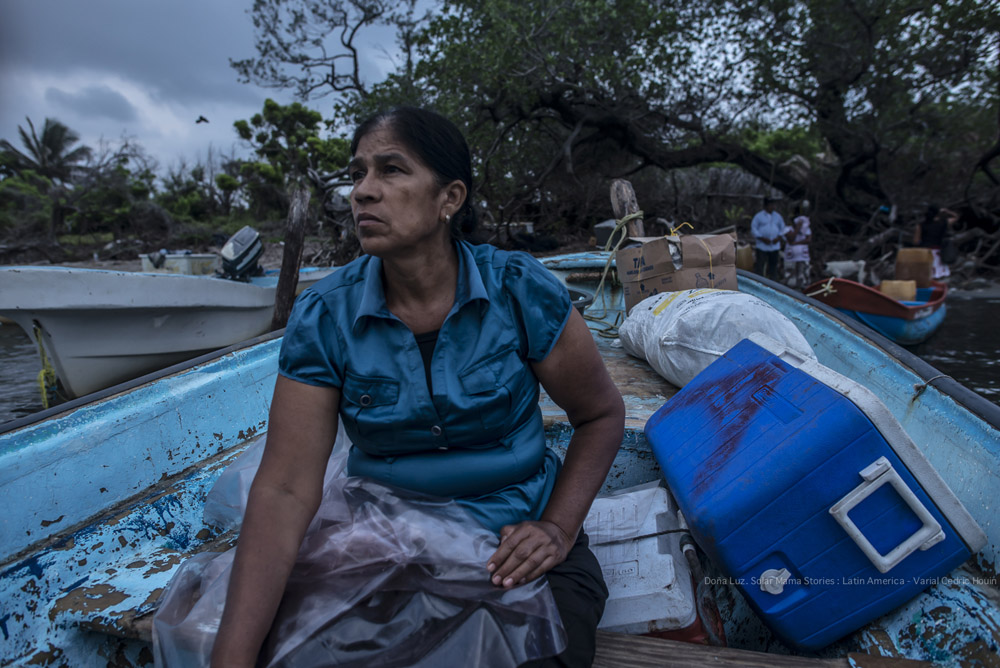
(…)
I find José and his motorboat without a problem. During the hour it takes to cross the inland sea, the sound of the motor drowns out our voices. José fixes his gaze on the horizon. In the middle of the inland sea, José turns off the motor and lifts it out of the water. “There’s no depth here,” he explains. “We fish shrimp here. Climb out of the boat, and you’ll see.” The water only reaches my mid-calf. An amazing feeling! I’m in the middle of the sea yet I’m walking beside the motorboat. “It’s like this until the island. We’re in the shallowest zone. If you wanted to, you could walk the length of the twelve kilometers to the island and swim the last 800 meters toward the continent. There’s a seabed only there.” At last, I perceive a sliver of land that seems to float on the horizon. Cachimbo!
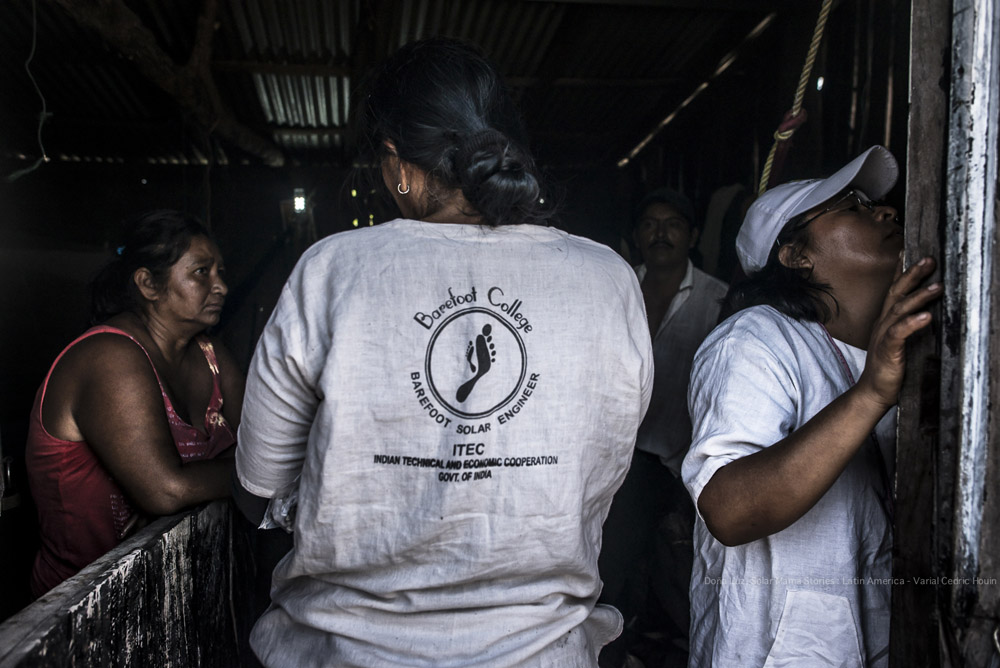
(…)
“Norma, tell me about the selection process, why and how you were chosen?”
“Before Barefoot visited us in Cachimbo, a few people came here to inform us that people from India were coming the next week and that all the women were to be present. When they came with Antonella and Nathalie from Enel, the Comité Melendre, and Gubixa, they assembled all of us. They separated the women over 35 and began to present the project. We listened; it all seemed wonderful. It was so amazing we said to ourselves that it was just more promises. They repeated that they were going to choose women over 35 and that these women, even if they are grandmothers, have their roots here and will not run away to work in other cities. A lot of the younger women didn’t understand! They said: ‘But grandmothers can’t remember! You have to choose young women!’ They explained exactly why not. We had trouble believing him. Here, no one gives without getting something in return… And then, suddenly… ‘You! You will go.’ ‘Me?’ ‘Yes, I like the way you speak!!’ ‘But I have eyesight problems so I can’t.’ ‘No worry glasses in India!! No problem, no problem.’ ‘No, it’s more serious than that; glasses don’t help,’ I answered. ‘No problem, operation in India!!’ I couldn’t believe it. They told me they never make a mistake when they choose and I was one of those selected. Husbands were saying women can’t leave like this because of their children. They answered that the children were grown up and some of them ready to become fathers. They asked the men to make their position known and then asked my husband who answered: ‘Well, if she wants to go, then let her go.’
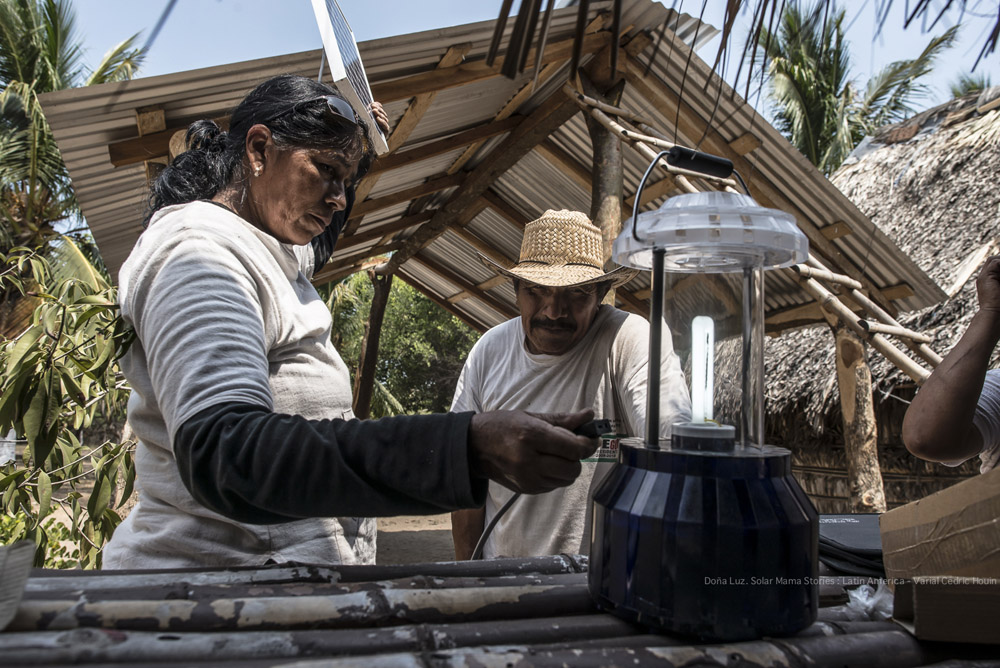
(…)
“Landing in Delhi is like opening a storybook. The clothes, the pants, the covered women, the pointed shoes, the landscapes, and the faces—all so different! For me, it was like a fairy tale.
“Delhi to Tilonia was an eight-hour jeep ride. We knew SixPal the driver. I called him “my” driver because, in Tilonia, he always drove me to my eye surgery and when I was sick.
(…)
“What was your greatest fear?”
“That the plane would fall!”
“How did they manage here without you? Was your son around?”
“No, I left my husband all alone! Three of my children are in the United States and Josécito was in Veracruz. José, my husband, stayed all alone. It was the first time we had been apart for such a long time. I was terribly sad to leave him alone.”
“How did it go for him?”
“He did everything alone without any help. He never stopped working: fishing, salting, drying the fish. When I would speak to him on the phone, he would say: ‘You don’t see the time go by and don’t feel lonely because you are with many people. For me here, it’s hard; time stands still, I’m all alone.’ ”
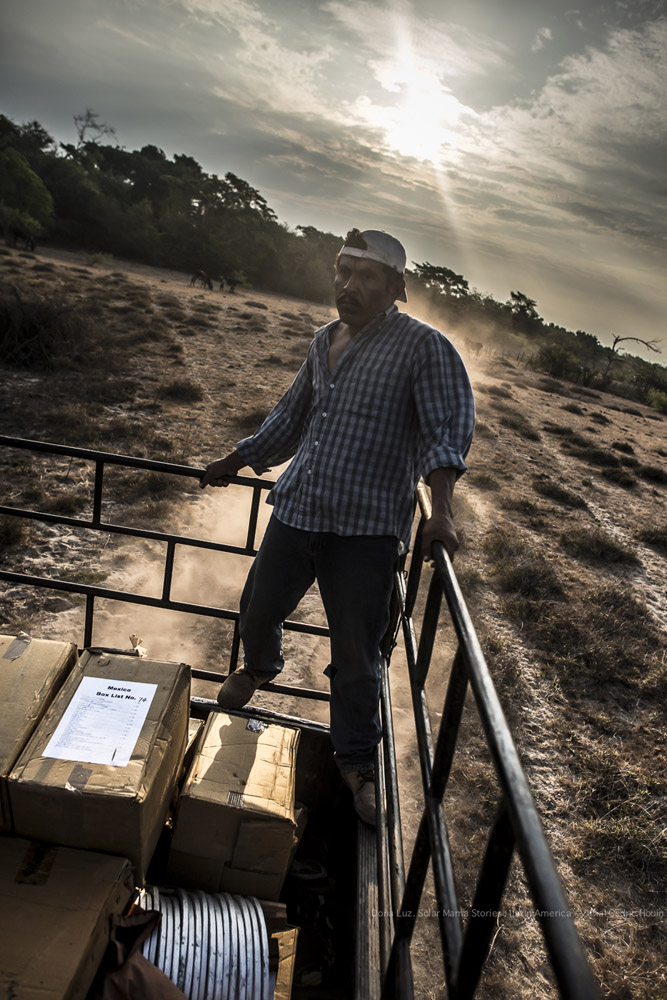
(…)
“Did this trip change your perspective of the world, your relationship with your community? Do you feel more confident?”
“When we left Cachimbo for India, I didn’t feel any change. I observed how people behaved there and the more time went by, the more I felt my relationship with people change. I learned to be more patient, to value people, and not only people but everything around me, including my food. Returning to Cachimbo, I felt very different. I wanted to teach everyone to be as generous. Here everything has a price. People don’t help each other out. I wanted people in my village to change. I told them about the volunteers, people like you or Lorenzo who help for hardly any pay. I found that very noble. Like us, who left everyone to help our community. That’s what I tried to get them to understand. My family understood, but no one in the village listened to me.”
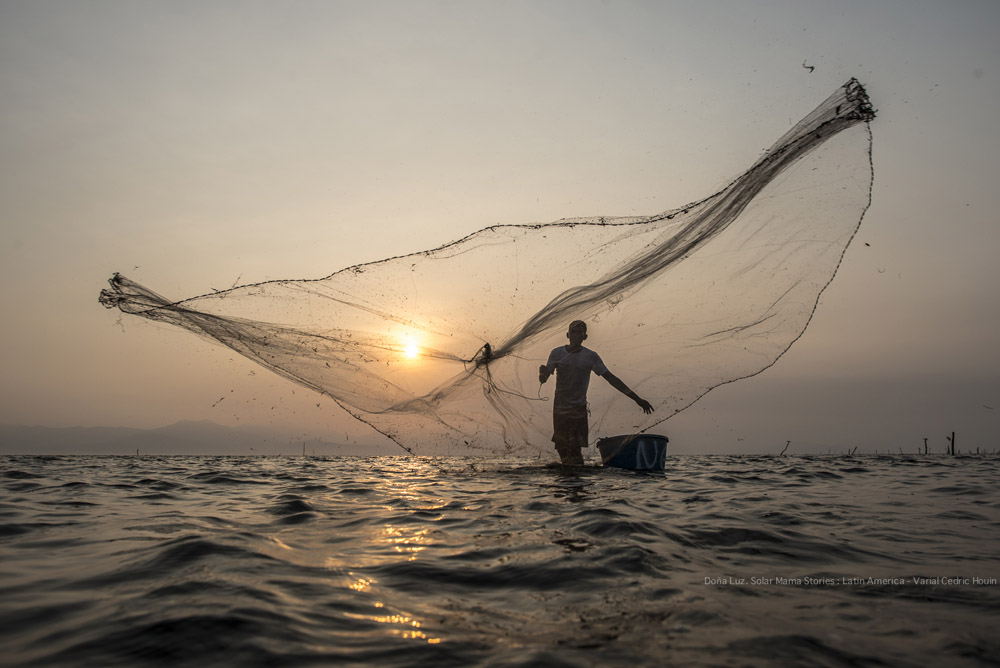
Purchase the book and merchandise:
https://www.barefootcollege-donaluz.org/

